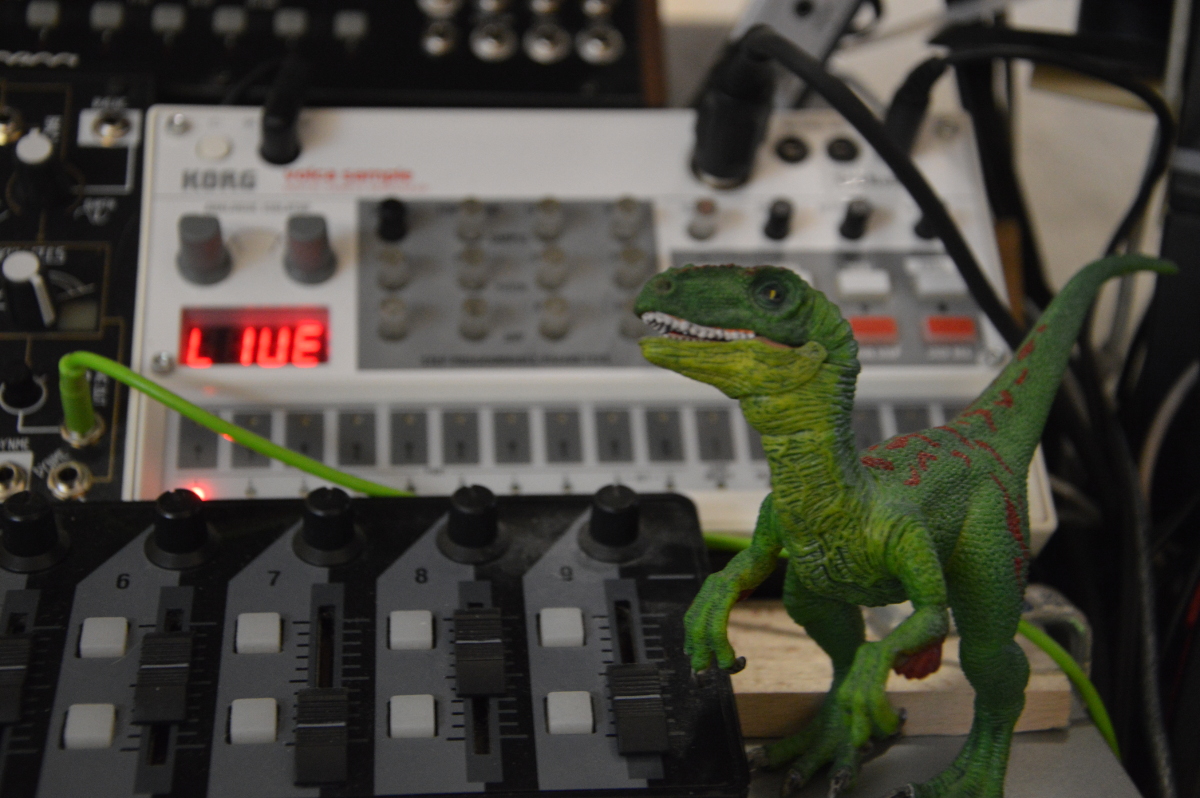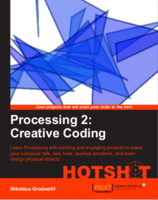SuperCollider drumsample generator
I noticed that my Volca Sample in my homestudio din't quite get the attantion and love it deserved so I desided to create a new sample pack for it. I wanted some fresh electronic samples so I wrote some SuperCollider scripts to create random drum Samples. I created a script for bassdrum, snare, hihats, clap, crash, tom and a metallic 'ding' sound - which I named 'Ding' because I could not come up with a more clever name. Each of the script generates 64 samples. I then chose 100 and organized them into sound banks and uploaded them to my Volca Sample.
Samples 00 to 19 are bass drums, 20 to 29 are clap samples, 30 to 39 is a crash, 40 to 49 is 'ding', 50 to 69 is closed and open hihats, 70 to 89 are snares and 90 to 99 are my tom samples. I'm not 100% satisfied by the ordering yet maybe I move the snare samples after the bassdrums and the hihats to the end of the list - the current ordering is created mainly for alphabetical reasons :-) but I really like the organisation in banks of 10.
To simplify things further I also created 10 empty patterns - the first one places bd-00 on slot 1, bd-10 on slot 2, sn-70 on slot 3, sn-80 on slot 4, ...
the second pattern places bd-01 on slot 1, bd-11 on slot 2, sn-71 on slot 3, sn-81 on slot 4, ... and so on. This way I can switch between the drumkits pretty fast. Since I mainly use my volca sample as a midi device, I usually don't need the patterns for anything else.
click here to listen to a track I made using this samples
If you want to create your own set of samples here are the supercollider scripts I used with a short description. If you create something nice with them please share a link in the comments.
Bassdrum
For the Bassdrum I combined a short noise burst with a bandpass filter sweep and a Sinewave with a linear pitch envelope.
SynthDef.new("bd", {
arg n=0.8, nl = 0.02, start=110, end=1, l1=0.1, l2=0.3, exp=1.7;
var boom;
e = pow(Line.ar(0.9,0,l2),exp);
boom = BBandPass.ar(WhiteNoise.ar(),freq:Line.ar(100,10,nl))*Line.ar(1,0,nl)*n+
SinOsc.ar(Line.ar(start, end, l1))*e;
Out.ar(0,[boom,boom])
}).add;
{
64.do{
Synth.new("bd", ["n":rrand(0.8,0),"nl",rrand(0.03,0), "start",rrand(100.0,50.0),"end",rrand(100,10), "l1", rrand(0.1,0), "l2", rrand(0.8,0.1),"exp", rrand(1,4)]);
1.6.wait;
}
}.fork()
Volca Sample SuperCollider Drum Set
I generated some random drum samples using supercollider and selected 100 samples as my new main drum kit for the volca sample. This is the first track I used my new drum sounds one. The volca sample gets a little help from the volca beats kick drum. The Bass sound is from the MiniNova, The synth track is from the Blofeld.

music live-coding environments - my first impressions
I've been playing with live coding Music environments lately here is a short description of the environments I've used so far
Sonic PI
Sonic PI is a live coding music environment that comes bundled with most raspberry pi images and was invented to teach coding through making sounds. But don't be fooled by it's simple interface or the name - Sonic PI is a pretty serious tool for making music. Despite it's name it runs on Linux, MacOS, Windows and - surprice! - a raspberry pi and is based on supercollider and ruby.
To program it you write ruby programs that contain loops to trigger various synths and samples - you can add a bunch of effects and control various parameters of the synths. It also allows you to write pretty complex melodies and chord structures, by adding random elements to your code.
Sonic pi already comes with a impressive collection of loops, samples, example programs and synths to get you started, but it also allows you to add your own samples or supercollider synth definitions if you want to.
Chuck
Chuck is a pretty unique programming language, that allows you to write virtual instruments and control them either with your code or with various controllers via midi, Hid-events, osc, or whatever else you come up with. You can start and stop your code in sync with the loops already running and it's the basis for the laptop orchestra.
The language used feels a bit strange in the beginning but one gets used to it pretty fast.
PureData + automatonism
Automatonism is a Modular Synth that runs on PureData Vanilla - which means it runs pretty much everywhere. It's a really impressive collection of modules, plus you can use it to livepatch and edit your modules. Since it runs on puredata, you can also use regular puredata structures should you ever get stuck with the provided modules.
The modules help to create a playable pure data patch pretty fast and allow you to expand from there if you want to dive deeper into the pure data universe.
Conclusion
Each of the frameworks I tested this weekend is pretty cool and each of them has it's strengths and weaknesses - I haven't played enough with them to choose a favourite yet. I will try to integrate them into my current Bitwig, VST-Plugin and hardware synth setup and see which one I end up using
read more ...osc events in supercollider
supercollider uses osc to controll the synthisizers internally, but i wanted a supercollider synth to react to my osc events instead of having to send supercollider-osc events from my app
after some research in the help files i found out that OSCresponderNode does the trick.
the code example shows how to register for an osc event and trigger a synth. now i can use a supercollidersynt with my ruby osc sequencer
(
SynthDef( "guru2", { arg mfreq=40;
var env, amp;
env = Env.perc( 0, 0.2 );
amp = EnvGen.kr(env, 1, doneAction:2);
Out.ar([0,1], SinOsc.ar( mfreq.midicps ) * amp * 0.5);
}).send(s);
)
n = NetAddr("127.0.0.1", 57120)
o = OSCresponderNode(nil, '/melody', { |t, r, msg| Synth( "guru2", [\mfreq, msg[1]]); }).add;
o.remove
SuperCollider on Linux
Today i have installed supercollider on my ubutu system following this instructions. SuperCollider is a environment and programming language for audio synthesis simliar to chuck. SuperCollider can run on a network and uses OSC events for comunication.
After looking around in the source tree i found a plugin for vim :-)
Installations is a bit quirky (the folders 'ftpplugin', 'syntax' and 'intend' needed to be copied to ~/.vim by hand) but now i can edit my sc code using my vim - veeeery cool :-)
single lines of code can be sent to the server using F6 codeblocks are sent to the server using F5.
s.boot
(
c = { arg f=900;
var x;
x = SinOsc.ar(f);
x * 0.1
}.play;
)
c.set(, 400);
c.set(, 670);
to start te server the first line has to be sent to sclang (using F6). Then the code block starting line 2 is sent to the server (using F5)... tata - a sine wave.
sending the last 2 lines (F6 again) change the frequency of the running synth.
F12 can be used to turn all sounds off.
read more ...



